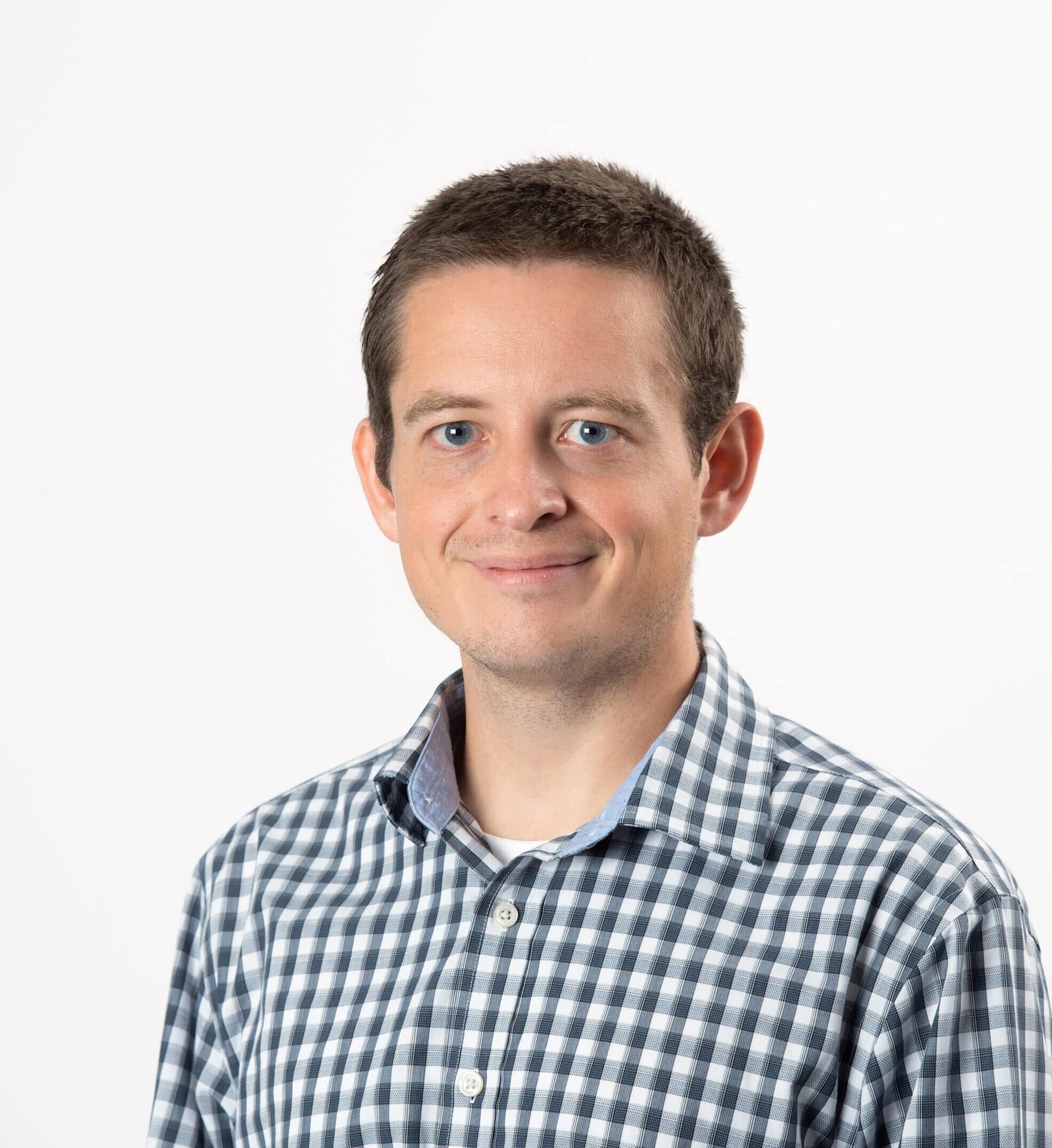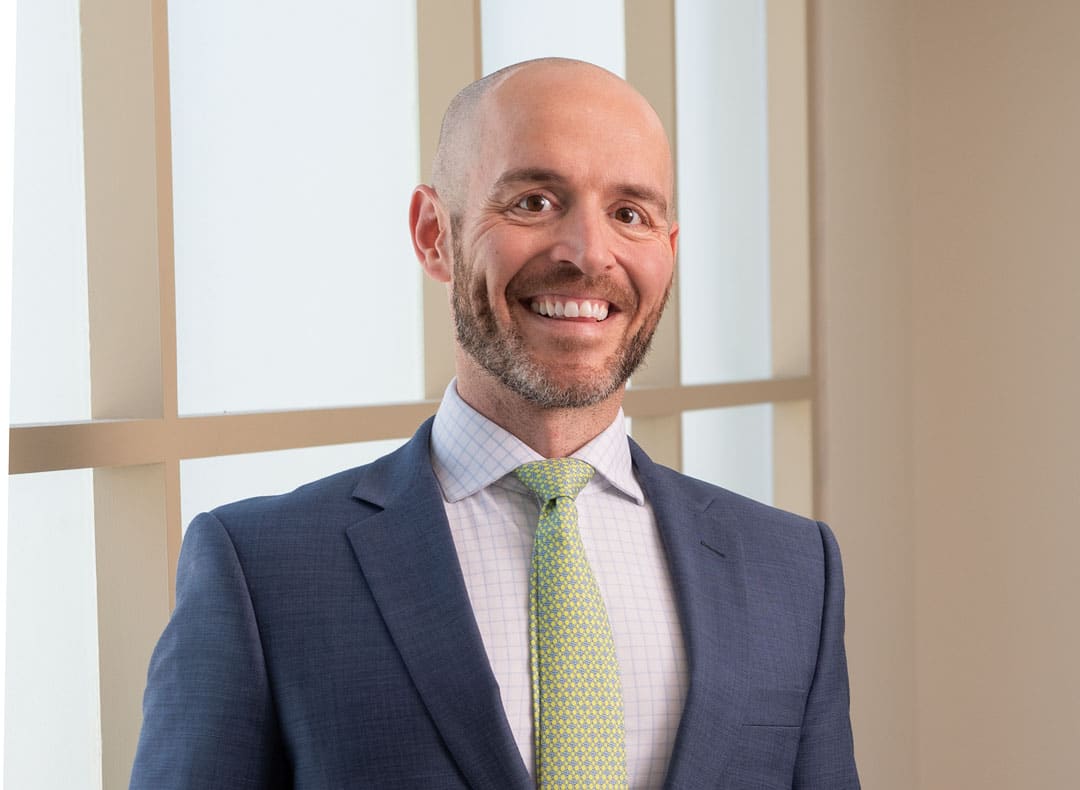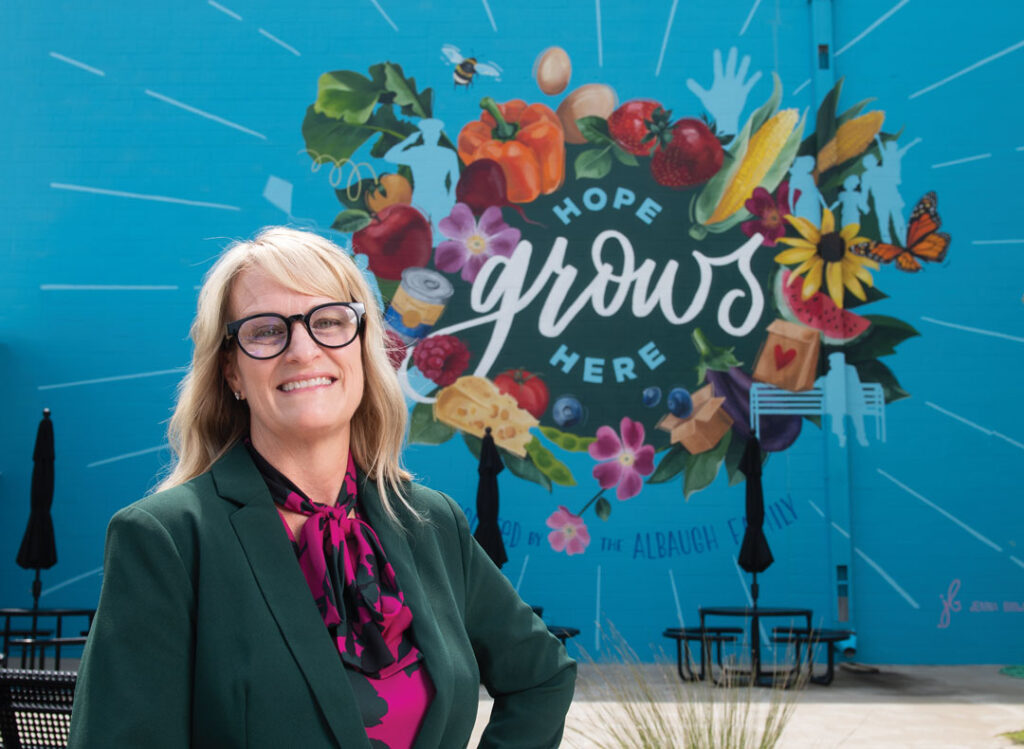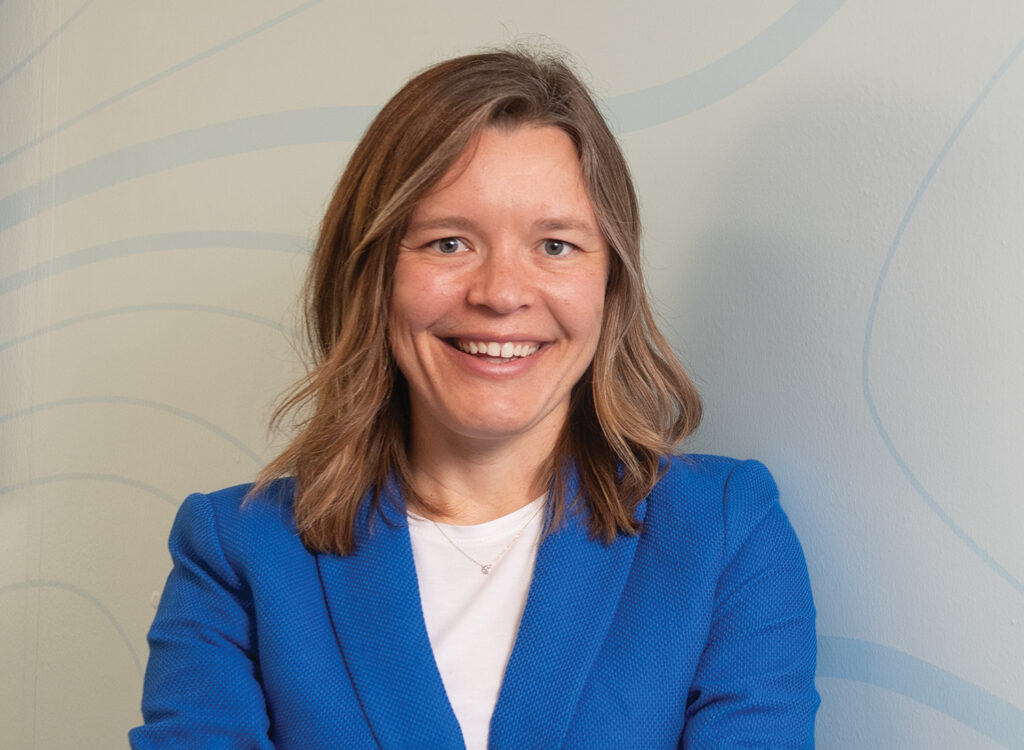A Closer Look: Ryan Crane
Executive director, NAMI Iowa

Ryan Crane considers his work with One Iowa to be the “coolest first job out of college and the coolest first job in Des Moines I could ever have.”
It was also Crane’s first experience working in the nonprofit world.
Upon graduating from the University of Northern Iowa in 2008 with a master’s degree in Spanish, Crane joined One Iowa as a senior field organizer.
“At the time, One Iowa was really a group of people smarter than me that saw that there could be an Iowa Supreme Court ruling that could legalize gay marriage,” Crane said. “And when I first started on that, it was kind of in a mobilization and grassroots fortifying of the LGBTQ community because One Iowa had made its bet that the Supreme Court was going to rule in favor of marriage equality. And so then, we sort of reverse engineered a scenario where we were the group of record that was trying to defend gay marriage in Iowa.”
Crane has now been involved in the nonprofit sector for 16 years, with experience working for Planned Parenthood Advocates of Iowa, Primary Health Care Inc., the Community Foundation of Greater Des Moines and the Des Moines Playhouse.
In October 2023, the National Alliance on Mental Illness (NAMI) Iowa announced that Crane would become the organization’s next executive director, replacing Peggy Huppert, who served in the position since 2016 and retired at the end of 2023.
“I was at the Community Foundation for about five and half years from 2015 to 2020 and really got a super bird’s-eye view of the nonprofit sector in Greater Des Moines and even just kind of in Central Iowa, regionally,” Crane said. “And it was there that I first started thinking about, ‘OK, you’re going to take a job when you’re going to take a job.’
“The Playhouse was a wonderful adventure, and I learned a lot about fundraising, but I started thinking about, ‘What do I do to make a real difference?’ Everything in the Community Foundation was very technical, and I was almost a consultant for the Community Foundation. At the Playhouse, it was cool too, but it was just laser focused on capital campaign. And so for both those jobs, I was kind of thinking, ‘OK, what’s next? What do I do to really make a difference? What do I do to feel like I’m giving back, that I’m doing something that’s good for society?’”
That introspection led Crane to NAMI Iowa.
“I think mental health, and perhaps [artificial intelligence], are the issues of our time,” he said. “Mental health touches on workforce, it touches on employment, it touches on schools, K-12 education, health care. Mental health touches all sectors, all industries. And it’s a bit of a crisis at the moment both at the state level, but even beyond that. Teens and young adults, especially female teens or teens who identify as female, oh, my God, it is pretty much an epidemic, really. It’s a public health emergency the way that youths are being disconnected from a shared sense of reality, and they’re just finding reality on their phone and on their devices and on the internet. It’s taking a toll on their mental health.”
The Business Record recently caught up with Crane to discuss how he got involved in the mental health sector, his first months as executive director of NAMI Iowa and the biggest challenges related to mental health in Iowa.
This Q&A was lightly edited for brevity and clarity.
What got you interested or inspired to pursue working in the mental health industry?
I think a lot of folks were in the shadows about mental health for a long time. I think not only did I want to make a difference, but I wanted to go for something that I could get behind with my heart as well. And there are a lot of folks who are emotionally still recovering from COVID-19. There are a lot of folks who suffer from substance use and substance use disorders and opioids and that kind of thing. And then there are a lot of folks who just need help and hope. And when I first learned this position was available, I got really excited. That help and hope piece is something that NAMI does really well. And I feel like it can sometimes be missing from these conversations, where it seems like a problem is too big. It seems like the problem is kind of almost intractable. It just never seems like it will get better at times. It’s a big challenge and a big issue, and NAMI is uniquely suited through its peer model and its evidence-based practices that can really make a difference.
Will you give a brief summary of what NAMI Iowa is and the kind of services that it provides?
NAMI Iowa is the largest grassroots support network that elevates the voices of lived experience in the mental health system. There are 14 affiliates across Iowa, and all of them offer evidence-based and empathy-led educational classes, presentations and support groups for people with lived experience with mental health challenges.
Will you share a little bit about what you’ve been working on in these first months in the position?
Lots of learning, lots of meetings – I think that perhaps goes without saying, but that’s the truth, and strategy. NAMI Iowa is undergoing a robust strategic planning process, and we want to chart our future. COVID threw us for a loop just like it did everyone else, and we want to plot for the future. So just kind of trying to survive like most nonprofits did from 2020-ish to 2023-ish. We’re pivoting now, and we want to really look forward to the future. So a lot of what I do is strategy and stakeholder engagement, and trying to be looped in with our stakeholders and looped in with our coalition partners as much as possible. That doesn’t happen by accident – that’s Zoom calls, that’s coffees, that’s going to meetings, and I’ve been trying to do my part in that as well.
What do you think is the biggest challenge right now related to mental health?
Access is a big challenge. I think part of that is rural, in the urban-rural, just the differences in the sort of disparities that I think are present for a lot of things that are in Iowa. I think ongoing funding and targeted funding. Again, we’re optimistic and we’re hopeful for the Health and Human Services-led realignment that just got passed through legislation. But I think access and continued funding are two big things. And then something that NAMI doesn’t do a lot of work with but I want to acknowledge as an issue is workforce. So workforce, getting folks into the social work field and the mental health field and the mental health provision. There’s been a lot of ink spilled that we have a shortage of beds in this state, and that is objectively true. A kind of interesting nuance on that, and Kevin Pettit at Clive Behavioral Health had some interesting things to say about this, too, just as an employer, that sometimes we actually have empty beds on a given day because we can’t find the right staffing ratios. Per capita, we don’t have as many beds as most other states, but even within that statistic is this tough nugget that we don’t have enough workers even for those that we do. Workforce is a significant challenge in that regard.
What do you think is the best strategy for solving the workforce challenge?
We hear it day in and day out, and I know that Gov. Kim Reynolds and her team, and Iowa Health and Human Services Director Kelly Garcia and her team really do understand, but it’s intractable. It’s super, super multifaceted, and NAMI’s thing is speaking truth to power, being grassroots. NAMI can convene and connect because we are neutral. We are not advocating for higher Medicaid reimbursement rates, for example. We are not advocating for the exact siting of a new mental health facility in X county. We do not do that; that is not our effect. We want to be a voice for all mental health providers, all friends and allies of folks with mental health challenges. We want to lift up all voices, and that’s why we are grassroots. And since we are not direct providers of mental health services, we want to speak as broadly as possible and have as big of a tent as possible in our advocacy work and our policy work, so that the Legislature and HHS does not see us as ‘Oh, well, NAMI just wants a Medicaid reimbursement like all the hospitals do.’ Or ‘Oh, well, NAMI’s just mad that we don’t have more beds in X county. We want to keep it as high level as we can, so that we don’t get bogged down or being seen as somebody who always has their hand out for X. We don’t want to get ourselves in that position. Others have to: hospitals have to, psychiatric facilities have to, nursing homes have to do that. It’s part of their literal job. Give us more money through Medicaid or Medicare, I get it, but because we can sidestep all that we hope that we maybe can bring a different perspective and a broader perspective.
What is one thing you wish people knew more about in regard to mental health?
Everyone has mental health challenges. Everyone. And for most, they are resilient. Most people can get through a little bout of depression. Most people can manage a temporal or transient or come-and-go mental health challenge. A lot of people think, ‘Oh, God, I can’t say I have mental health problems. They’ll think I’m suicidal or they’ll think I have schizophrenia or something.’ No, no, no. Most people, in fact, the vast majority of people who experience a mental health challenge, will quote, unquote, get through it. The number of folks who have these severe mental health challenges and even some of these kind of more exotic schizoaffective disorder or suicidality or borderline personality disorder, some of these are tough things to talk about, but they are the minority. Most people who deal with anxiety or depression or insomnia get through them and find a way to work through them or work around them, and it doesn’t have to be a part of their life. It doesn’t have to be a life sentence. Talking about that is what helps. I had my own blue period during COVID; I think many of us did the summer of 2020. I experienced some anxiety and some depression, and when the world started to become normal again, it seemed to kind of correct itself. But the social isolation was really hard on me, and I had some anxiety and I got through it and I think that that’s how most people experience it. Be it the death of a parent, the loss of a job, a divorce, your teenage kids going through it, you get through this. I think a lot of folks who are going through mental health challenges stay quiet because they’re anxious to acknowledge that they’re having mental health challenges, but it’s temporary. You get through it.
Is there anything else you’d like to share?
Third spaces. Third spaces are something that I’ve really been nerding out on. Well covered. You can Google it, and a bunch of cool stuff pops up. Third spaces – we have work or school and we have home. What is your third space? What do you do? Is it art? Is it church? Is it rotary? Is it an athletic thing? Is it an intramural sport? You’ve got to have something that’s a third space. I personally find my third space to be health and wellness, or recreation – gym related – but everybody needs a third space. And a lot of people don’t have one. I just have kind of been noodling on that and researching that and talking about that with people. So third space – it’s a constructive hobby. It’s a constructive passion. It’s something you do that keeps you from going home and sitting on your couch and watching TV for five hours every night. You got to have something that’s a hobby or a passion for your mental health.
At a glance
- Age: 40
- Hometown: Council Bluffs
- Education: Bachelor’s degree in communications studies and Spanish, and a master’s degree in Spanish from the University of Northern Iowa
- Family: Partner, Trevor, and an Italian Greyhound, Donatella. We live in West Des Moines.
- Contact: ryan@namiiowa.org

Kyle Heim
Kyle Heim is a staff writer and copy editor at Business Record. He covers health and wellness, ag and environment and Iowa Stops Hunger.











